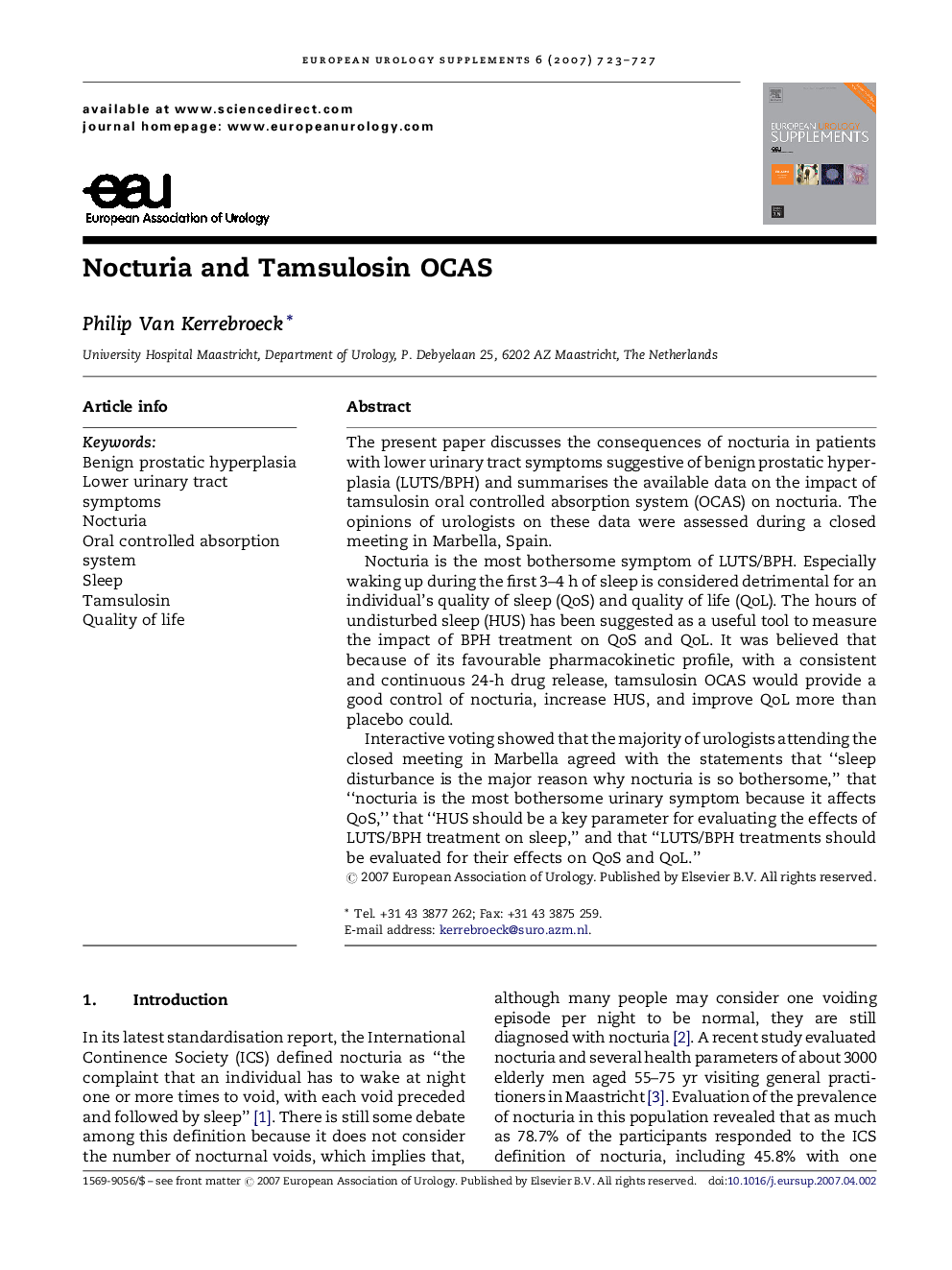| Article ID | Journal | Published Year | Pages | File Type |
|---|---|---|---|---|
| 3934738 | European Urology Supplements | 2007 | 5 Pages |
The present paper discusses the consequences of nocturia in patients with lower urinary tract symptoms suggestive of benign prostatic hyperplasia (LUTS/BPH) and summarises the available data on the impact of tamsulosin oral controlled absorption system (OCAS) on nocturia. The opinions of urologists on these data were assessed during a closed meeting in Marbella, Spain.Nocturia is the most bothersome symptom of LUTS/BPH. Especially waking up during the first 3–4 h of sleep is considered detrimental for an individual's quality of sleep (QoS) and quality of life (QoL). The hours of undisturbed sleep (HUS) has been suggested as a useful tool to measure the impact of BPH treatment on QoS and QoL. It was believed that because of its favourable pharmacokinetic profile, with a consistent and continuous 24-h drug release, tamsulosin OCAS would provide a good control of nocturia, increase HUS, and improve QoL more than placebo could.Interactive voting showed that the majority of urologists attending the closed meeting in Marbella agreed with the statements that “sleep disturbance is the major reason why nocturia is so bothersome,” that “nocturia is the most bothersome urinary symptom because it affects QoS,” that “HUS should be a key parameter for evaluating the effects of LUTS/BPH treatment on sleep,” and that “LUTS/BPH treatments should be evaluated for their effects on QoS and QoL.”
